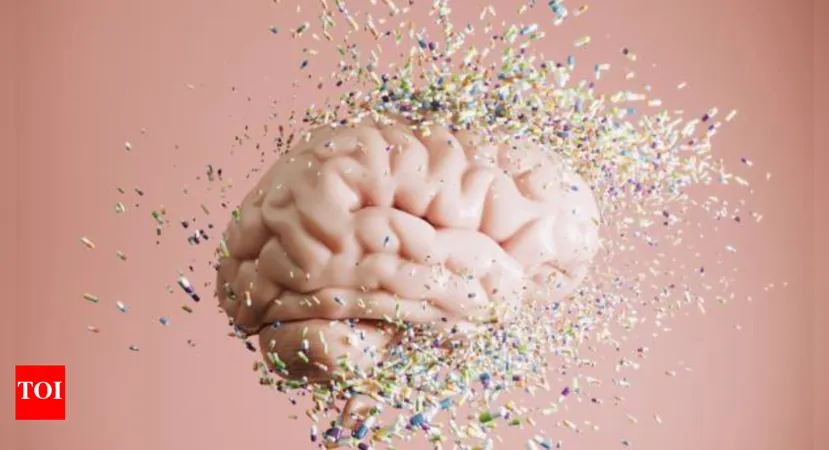
Revolutionary Breakthrough: How Blocking a Single Protein Could Turn Back the Clock on Brain Aging!
2025-08-25
Author: Li
The Shocking Discovery of FTL1
In a groundbreaking study from UCSF, scientists have unveiled FTL1 as a major player in the brain's aging process, particularly impacting the hippocampus—the brain's memory hub. Older mice showed alarming levels of this protein, corresponding to a staggering decline in cognitive function and neural connections. However, the real twist? Reducing FTL1 levels in these aging rodents surprisingly rejuvenated their memories and brain cell connections!
Aging: The Uninvited Guest in Our Minds
As we age, our brains inevitably face challenges such as forgetfulness, slower reactions, and a struggle to learn new things. But what if there's a specific reason behind this deterioration? Enter FTL1—a newly identified protein that UCSF researchers believe is key to unraveling the mystery of age-related cognitive decline, as published in the prestigious journal, Nature.
What Makes FTL1 So Dangerous?
The research team delved deep into the cellular changes occurring in the hippocampus over time, using mice as their experimental models. Their analysis revealed a startling distinction between young and old mice: a higher concentration of the FTL1 protein in the latter. This rise in FTL1 was not just a coincidence; it was directly linked to a drop in the vital connections between brain cells, resulting in diminished cognitive abilities.
The Experiment That Changed Everything
To prove FTL1's damaging effects, researchers artificially boosted its levels in young mice, with alarming results. The once-vibrant brains of these young subjects began to mimic the cognitive decline seen in older mice. In laboratory experiments, cells that produced copious amounts of FTL1 developed simplistic, poorly-connected neurites—far from the complex structures of healthy cells.
A Rejuvenating Reversal?
But here's the kicker: when the team cut back on FTL1 levels in older mice, a miraculous transformation occurred. These aging creatures not only enhanced their neural connections but also aced memory tests! "This isn't just about delaying age-related symptoms; we’re witnessing a true reversal of impairments," declared Saul Villeda, PhD, associate director of the UCSF Bakar Aging Research Institute, underscoring the monumental potential of this research.
The Future: Hope on the Horizon
What’s more, FTL1 doesn't just hinder connections; it also slows metabolic processes in neuronal cells. Fortunately, the researchers didn't stop there—they found a compound that revitalizes metabolism, counteracting the negative effects of FTL1. Villeda expressed optimism about future therapies, stating, "We're uncovering ways to mitigate the most challenging aspects of aging. It's an exciting time to explore the biology of aging!"
Stay Tuned for More Advancements!
This monumental discovery paves the way for potential treatments that could combat the cognitive decline associated with aging. As research continues, the hope of reclaiming our youthful brains may soon transition from a dream to a reality!


 Brasil (PT)
Brasil (PT)
 Canada (EN)
Canada (EN)
 Chile (ES)
Chile (ES)
 Česko (CS)
Česko (CS)
 대한민국 (KO)
대한민국 (KO)
 España (ES)
España (ES)
 France (FR)
France (FR)
 Hong Kong (EN)
Hong Kong (EN)
 Italia (IT)
Italia (IT)
 日本 (JA)
日本 (JA)
 Magyarország (HU)
Magyarország (HU)
 Norge (NO)
Norge (NO)
 Polska (PL)
Polska (PL)
 Schweiz (DE)
Schweiz (DE)
 Singapore (EN)
Singapore (EN)
 Sverige (SV)
Sverige (SV)
 Suomi (FI)
Suomi (FI)
 Türkiye (TR)
Türkiye (TR)
 الإمارات العربية المتحدة (AR)
الإمارات العربية المتحدة (AR)